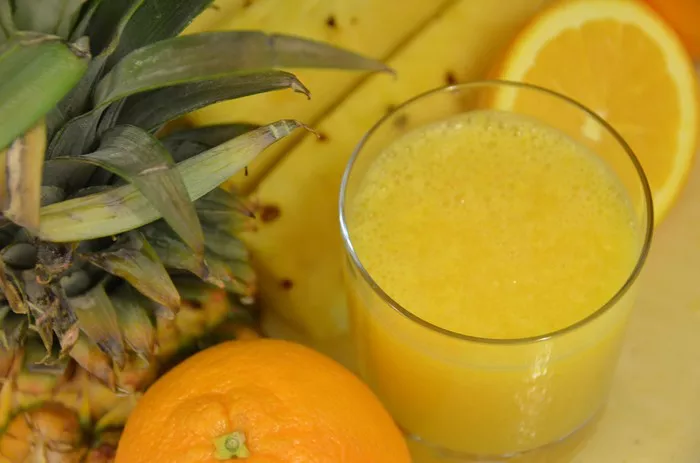High blood pressure, or hypertension, is a prevalent health concern that significantly increases the risk of heart disease, stroke, and other cardiovascular issues. Lifestyle modifications, including a balanced diet, play a pivotal role in managing blood pressure. Incorporating fresh juices into your daily routine can be an enjoyable and effective way to support your efforts. In this article, we will explore various juices that are renowned for their potential to lower blood pressure, providing you with a natural and delicious approach to cardiovascular health.
1. Beetroot Juice: The Nitric Oxide Booster
Beetroot juice has gained recognition for its remarkable ability to lower blood pressure due to its high nitrate content. Nitrates are converted into nitric oxide in the body, a compound that relaxes blood vessels and improves blood flow, ultimately leading to lower blood pressure.
Research studies have shown that consuming beetroot juice can result in significant reductions in both systolic and diastolic blood pressure. Incorporating this vibrant red juice into your diet a few times a week can contribute to better blood pressure management. To enhance the flavor, you can combine beetroot juice with other fruits and vegetables like apples, carrots, and ginger.
2. Pomegranate Juice: A Heart-Healthy Elixir
Pomegranate juice is rich in antioxidants called polyphenols, which have been linked to various health benefits, including blood pressure reduction. These antioxidants help protect the lining of blood vessels, improve blood flow, and lower inflammation.
Several studies have suggested that regular consumption of pomegranate juice may lead to significant decreases in systolic and diastolic blood pressure. Incorporating pomegranate juice into your daily routine can be a flavorful way to support your heart health. Consider blending it with berries, spinach, or a splash of lemon juice for added taste and nutritional value.
3. Celery Juice: Nature’s Blood Pressure Regulator
Celery juice has gained popularity for its potential to lower blood pressure naturally. It contains compounds called phthalides, which help relax the muscles in and around arterial walls, leading to improved blood flow and reduced pressure.
While more research is needed to establish definitive links, some studies suggest that celery consumption may contribute to modest reductions in blood pressure levels. Incorporating fresh celery juice into your diet, either on its own or blended with other vegetables, can provide a refreshing and hydrating way to support your cardiovascular health.
4. Orange Juice: Vitamin C and More
Orange juice is a well-loved and widely available option that can offer benefits for blood pressure management. Oranges are packed with vitamin C, an antioxidant that supports overall heart health by promoting healthy blood vessels and reducing oxidative stress.
Some research suggests that regularly consuming orange juice may lead to modest reductions in blood pressure. Opt for freshly squeezed orange juice to maximize its nutritional content and minimize added sugars. You can also experiment by adding a splash of citrus to other fruit and vegetable juices for a well-rounded flavor profile.
5. Watermelon Juice: The Hydrating Hypotensive
Watermelon juice is not only incredibly hydrating but also boasts potential blood pressure-lowering properties. This juicy fruit contains an amino acid called citrulline, which helps relax blood vessels and improve blood circulation.
Though more research is needed to fully establish its effectiveness, watermelon consumption has been associated with reduced blood pressure levels in some studies. Enjoying watermelon juice as a refreshing beverage or blending it with other fruits like cucumber and mint can provide a delightful way to support your cardiovascular well-being.
6. Carrot Juice: Beta-Carotene for Blood Pressure
Carrot juice, rich in beta-carotene and other essential nutrients, may contribute to blood pressure regulation. Beta-carotene, a precursor to vitamin A, is known for its antioxidant properties and potential benefits for heart health.
While the direct impact of carrot juice on blood pressure requires further investigation, the inclusion of this vibrant juice in your diet can provide a host of nutritional benefits. Consider combining carrot juice with other vegetables and fruits to create flavorful and colorful blends.
7. Green Juice: Leafy Greens for Hypertension
Green juices, crafted from an assortment of leafy greens such as spinach, kale, and Swiss chard, are a powerhouse of nutrients that support heart health. These greens are rich in potassium, a mineral that helps balance sodium levels in the body and regulate blood pressure.
Regular consumption of green juices can contribute to a diet that is conducive to blood pressure management. Experiment with different combinations to find your preferred mix of leafy greens and complementary fruits or vegetables.
Conclusion
Incorporating fresh juices into your diet can be a flavorful and enjoyable way to support your journey towards optimal blood pressure levels. While these juices offer potential benefits, it’s important to remember that they are just one aspect of a comprehensive approach to hypertension management. Maintaining a well-balanced diet, engaging in regular physical activity, managing stress, and consulting with a healthcare professional are all essential components of a holistic strategy.
As you explore the world of juicing for blood pressure support, consider experimenting with various combinations and flavors to create blends that resonate with your taste preferences. Whether you opt for beetroot, pomegranate, celery, orange, watermelon, carrot, or green juices, you’re taking a step towards nourishing your cardiovascular health in a delicious and refreshing way.






















